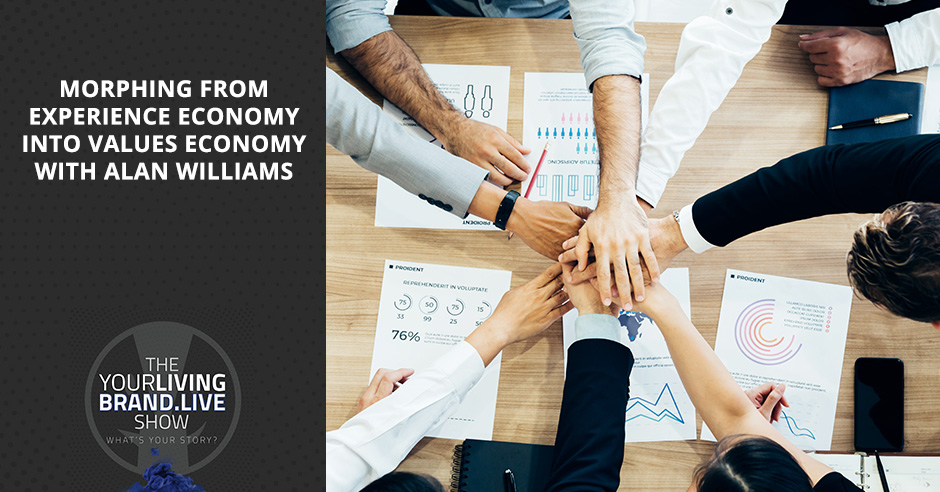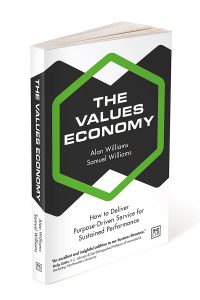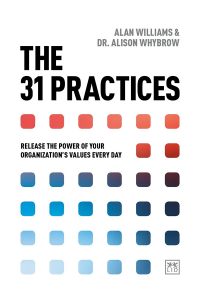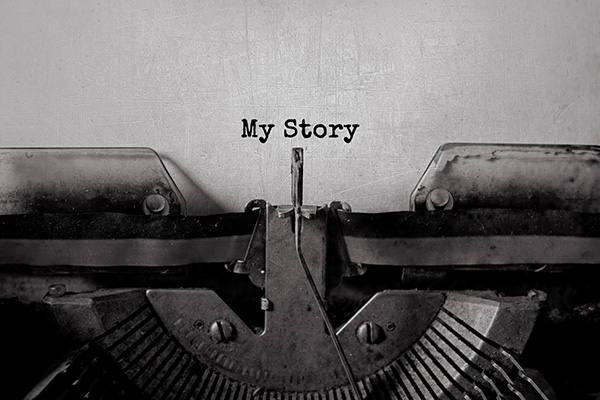
The role of a business owner is to provide experience, value, and help to their employees. An employee’s experience reflects how an organization values people. And, most of the time, people listen to employees more than the organization. In this episode, Ben Baker sits down with the Founder of Global Values Alliance, Alan Williams, to talk about how organizations can morph from experience economy into values economy. Tune in, as this insightful conversation will help your organization move forward.
—
Listen to the podcast here
Morphing From Experience Economy Into Values Economy With Alan Williams
[00:01:35] In this episode, I want to talk about the value economy. Has the experience economy morphed into the values economy? How do we think the world has changed? How we interact with the world changed and we need to be able to think about who are we, what we do, why we do it, and who we do it for. I got Alan Williams joining me, and we’re going to have a great conversation about this.
—
[00:02:07] Alan, welcome to the show.
[00:02:08] Thanks a lot, Ben, for the invitation. I’m looking forward to this.
[00:02:13] I love having people from across the pond because you guys speak properly. I’m the one with a funny accent. I love speaking with my friends from across the pond because I always get a proper British accent, and it’s appreciated.
[00:02:25] I hear you got a pretty good British accent yourself.
[00:02:28] I could fake it with the best but usually when I had a few pints. The more Guinness I have in me or the better scotch that I have been drinking, the better the accent gets. I fully admit that it usually comes out when I have a little bit too much of the sauce, but that is an episode for a different day. Alan, why don’t we let the world know a little bit more about you because you come from the service industry? I love to let people understand a little bit about who you are, where you came from, and where you are now, and let’s get into the conversation.
[00:02:58] My original career, as you mentioned, was in the hospitality sector. I used to run five-star hotels, conference centers, and restaurants. Without knowing it, it was a fantastic training ground for what I do now, which is to help organizations deliver values-driven service through a team of people that are proud ambassadors to represent their organization. That’s what the hospitality sector is all about.
When you ask employees, 'What's it like to work for that company?' do you think they would get their phone out, go to the website, and then read off all of the official messaging of the company to you, or do they share their felt… Share on XI remember when I moved away from it, and I moved into, for instance, banking, and people’s days consisted of a load of meetings and PowerPoint presentations. This was a new concept to me because, in hotels, you look after your guests and employees. You don’t have many of the meetings, the presentations, and stuff. It is a great training ground.
[00:03:52] I had this wonderful lesson that I learned early on in life. I had a great mentor who was the vice president of sales. He says, “Ben when you’re going to hire salespeople, go eat at some of the best restaurants in town and pill for their waiters and waitresses. People that understand service understand service regardless of where they are. It’s baked into their DNA. The people understand that our role is to provide experience and value and help other people. When we help other people, we help ourselves.” Those are the people that are going to go far in life. That’s where I want to get to. I want to talk about the experience economy and why you think it’s morphed into the values economy. Let’s start with the definition of both in your opinion and let’s get into that.
[00:04:44] It struck me that in business, loads of people are banging on about customer experience, being the Vanguard of how you’re going to do business and be successful. The experience economy phrase was coined in the 1990s. I was thinking to myself, “That’s the last Century. That is long ago. Have we not moved on since then?”
[00:05:16] It’s like wearing wide lapel suits. Is that what you’re trying to tell?
[00:05:23] We have moved on because what is it that people want? At one time, it was an experience full stop. Whereas now, that’s no longer enough and people want to know what’s underneath the hood. If you imagine a theme park, for instance, where you do get a wonderful experience, but you know that that organization, company, or business is perhaps not the best from an ethical standpoint. We say their service partners, their employees, or whatever.
You will think less well of them. A lot of people are now making a choice not to have a relationship with that organization because of that. I heard a fantastic story at a workshop where I explained the principles of the values economy. She was Scottish. She explained that she used to go to a local restaurant that was one of the best in town. Every time she had a celebration or had some extra money and wanted a treat, that’s where they would go. Every single time the food was perfect, and the service was brilliant, and then COVID happened.
She discovered that they didn’t treat their employees well. As she further discovered, the human resources director was the partner of the owner, so there are no excuses about we got a dumb human resources director. This was deeper than that. She shared with the group that she has made a conscious choice now to never go back to that restaurant. That is nothing to do with the experience because the experience was faultless. She has made that decision based on what is important to her or her values. That story encapsulates why we have moved from the experience economy towards the values economy.

[00:07:24] That is important because you hear it amongst employees and HR people that we need to live our values. The question is, are the C-Suite hearing this? Do they realize that by their companies, employees, and themselves living their values, they’re elevating their company, brand, and the place within society to a point where people are talking about them positively or if they’re not living their values, negatively?
We need to be able to explore that because experience is one thing. If you sit there and say, “I went to a restaurant, and I had a great time.” As you’re leaving the restaurant, you see the manager berating a staff member in public, and all of a sudden, that wonderful experience that you had has been completely negated.
[00:08:26] When I talk about the values economy, I talk about the perfect storm of three drivers. There are probably others, but these are the three core drivers. By coincidence, they all begin with a C. I call it C to the power of three, which creates the values economy. The first is the basis on which we make our Choices. It has changed and is more like the lady in Scotland now where we’re making choices on a deeper, more emotional basis, rather than the more rational, what am I getting for my money basis that we used to. That’s the first one.
The second one is Control. It used to be that organizations thought that they owned their brand. The senior guys would get somebody like you and maybe they would try and do it themselves. They would come up with this vision of what they wanted to be. They would then pump it out into the world and almost cross their fingers, close their eyes, and hope that they would convince enough people.
Whereas now, the ownership is by the stakeholders and you’ve mentioned it in your examples. Whether it be employees talking about the organization, customers, service partners, investors, or even local communities, it’s what those people say that people listen to rather than the official messaging from the organization itself. Control has shifted. That’s the second C.
The 3rd related to the 2nd is the whole thing around Communication, which is all about the internet and social media, where in a heartbeat, we can share our thoughts and feelings with millions of people all around the world. When you put those three Cs together, you get this perfect storm, which we refer to as the values economy.
Values are for living, not laminating. It’s more harmful to have values that you do not live than not to have any values stated at all because the moment you say, “This is what I stand for,” people will judge you on that. Share on X[00:10:17] The one thing that came to mind me is the Jeff Bezos quote, which is, “Your brand is how people view you when you’re not in the room.” I probably haven’t got it word for word but that is the gist is that your brand is how people view you when you’re not in the room. Whether that’s in person or on social media, that’s a powerful thing for people to think about. It’s not how I perceive myself as my brand. It’s how others perceive me.
Your brand can change in a heartbeat, on social media, on Yelp, on Glassdoor, and there are a million different platforms out there where people have the ability to either speak kindly of you or not kindly of you. You, as a business, can’t ignore these things because it’s not that they are wrong and you are right. It’s that’s what they perceive. If they perceive it, who else perceives you that way? What is that doing to how you are valued moving forward?
[00:11:19] The example that I love to use is a little bit dated now, but the principle and the message that it conveys is powerful that I still use it. The time when it happened for me is less relevant and you might have come across it. Dave Carroll, a musician, is traveling with United Airlines. They bust up his guitar and he spent a year trying to get it sorted out to no avail. He was ignored by the company. What can he do? Write a song called United Break Guitars.
The way in which I use it in workshops is that I play a video of a United Airlines advertisement. They paid for the marketing budget. It talks about how United Airlines have flown the US Olympic team to the Olympic games for the last several years. YouTube hits 16,000. This is where United airlines had zero control over these 20 million YouTube hits. This puts into stark relief. The difference between messaging that is controlled by the organization and messaging which is not controlled.
[00:12:34] Many organizations still believe that they control things through their PR department and marketing department. There are no questions you can influence. However, the question is, and you’ve said this earlier, what do people believe? Do people believe what they read on Yelp, Glassdoor, LinkedIn, Twitter, TikTok, or wherever? Do they believe the fancy glossy ads that you have created or the truncated videos that you have produced that are sitting there showing your best side? We tend not to believe the veneer anymore. The veneer is one of those things where people sit there and say, “That’s nice that you believe this. It’s nice that you’ve told me this. Now prove it.”
[00:13:20] Bring it down to personal experience. You were talking about having a pint of Guinness earlier on. Imagine that you are in Ireland having a point of Guinness and you bump into an employee that works for Guinness. You say to them, “The product is brilliant, but what’s it like to work for that company? Do you think that that employee gets their phone out, goes to the website, and reads off all of the official messaging to you, or do they share their felt experience? It’s the latter, and you believe it.

[00:13:51] The problem is employers are trying to control what their employees say, and that’s the worst thing that you can do. These people make them advocates for your brand, passionate about your brand, and believe in your brand. These people will tell your story over and over again and propel your brand into the stratosphere.
As you said, if that employee has been ill-treated, they got a bad boss, or had HR policies that frustrate them, they will do everything within their power to tell the world about how ill-treated they are by that company. We need to think about what are the values that we’re putting forward as a company. What do we believe in? What is our culture? What is our brand? When we do that, we put ourselves in a position where we could either elevate ourselves or we can drag ourselves down to the gutter.
[00:14:48] There’s no in-between. That’s the bit that I would add there. It’s either an enhancement or a distraction from what you want to be perceived as. I had dinner with my eldest son. He works for a recruitment consultancy. Pretty progressive, he had been away for the weekend hiking. He came back to work and logged on. He said the first email from his boss was one telling him that he had won a spa day at a local five-star hotel because she had done some work for this hotel company in exchange for a spa day. He had had his name put into the draw. It happened that he won. He was like, “What a great start to the week.”
I had another email from her. I opened it and it said, “Guys, we know that the cost of living crisis is hitting hard. I want you to know from next month, it’s £1,000 a year increase for everybody. We can’t do any more than that at the moment. If we can towards the end of the year, we will.” He was like, “This is getting better.” When he was telling me, I could tell that he wasn’t promoting the company because he felt he ought to. It was that he was genuinely impressed by the care that they were giving to him as an individual. He loves his job. I had a matter of family occasion and I said, “I love my job.” That is priceless.
[00:16:17] That’s incredible because that’s a company that’s sitting there going, “We are living our values. We want to take care of our people.” I can’t tell you over the last several years how many times we took a board of directors on a retreat to a fancy resort, set up a whole bunch of different blackboards, and created mission, vision, and values statements. They were saying, “Customer service is number one. Employees are important to us.” They come up with these wonderful pithy statements. I came back several years ago, “How is it going?” Nobody within the company can tell you what the mission, vision, and value statement are because nobody is living them.
All they are is 200-point words on a wall, somewhere taking up space. We need, as a company, to sit there and say, “These are our values. This is what we believe in.” You need to put your money where your mouth is because that’s what people are going to believe about you. Not what you say, but what you do.
People want to be allowed to do a good job, shown respect as an individual, and valued and appreciated for what they do. Share on X[00:17:18] It has become a bit of a signature phrase for me which is, “Values are for living not for laminating.” It’s more harmful to have values that you do not live than not to have any values stated at all. The moment you say, “This is what we stand for,” people will judge you on that. If you don’t translate that into the way you behave and the choices that are made, people are, at best, going to be confused because it doesn’t match up. At worse, they’re going to be highly suspicious and maybe not trust you. If you got those values on the wall, make sure that your people are living them for sure.
[00:18:29] That creates havoc, not only with customers but with internal customers as well. That is why we have the Great Resignation, quiet quitting, and so much distrust between leadership and team members. It is because all these wonderful things are being said, and nothing is being done. I equate it to the companies that do a customer experience survey. They have 10,000 employees. They send these surveys out. Everybody diligently fills in the survey, takes the time, goes through it, and nothing is done. How much does that make employees think, “They don’t care about us, and all they were doing was ticking a box?”
[00:19:11] I have written a blog and it says, “If you got measurement and insight with which you do not make a decision, why were you collecting it in the first place? You’re wasting your time.”
[00:19:25] All this has to do with change because we are in a world that’s continually changing, and it is going to continually change. This quote is brilliant. I got to find it, “The pace of change will never be this slow again.” I took that directly from your website, and I love that. When you’re thinking about change, and we’re thinking about the values economy, how do we help organizations morph? How do we help them move from the experienced economy to the values economy and bring every person with them?
I use the expression, “Leave no person behind.” When you leave the employees, customers, and vendors behind, all of a sudden, there’s someone there going, “Where did everybody go? How come I’m being ignored? If I have been ignored, maybe I’m not important. Now I’m going to start making posts on social media.” How do we enable people to understand that change is happening whether we like it or not? How do we get them to embrace it and be able to move forward with us?
[00:20:34] There are two parts to this. The first is the realization that things are different now than they used to be. We are living in an age of exponential change. It’s not incremental anymore. It’s happening so fast like in the quote. That means you can no longer have this command and control approach. You have to have the ability to allow decisions to be made closer to where the action is happening because the traditional, more senior people are too far away and won’t be able to respond quickly enough. Added to that, I would suggest that people need to realize that if they don’t take that action, at best, they’re not going to thrive and, at worse, they might not survive. There are a pretty good couple of motivators to get on and do something different.

The answer is rooted in a foundation of values because if your employees know what you stand for and what your essence is as an organization, and they are able to translate that essence into practical day-to-day behaviors, what that does is a number of things. It removes ambiguity. People are no longer confused about, “Should I do this? Should I do that?” It instills confidence because people know that. If excellence is one of the values and we translate that into a practical behavior that we celebrate success and achievement, they know that that is a behavior that is expected of them.
When they are giving praise to an employee, they know that they are backed up by the organization. Equally, when they see the absence of praise or recognition, they know that they are in a good place to be able to call it out because the most senior people in the organization have said, “This is what we believe in. This is how it translates into behaviors.” It instills that confidence.
Finally, it breeds resilience. When you do get the knockbacks, people have this sense of surety and are therefore able to overcome those challenges when they happen to go forward. It starts with the motivation of how you are going to do things differently. It’s then using these values rock to help you and all of your people behave that way as you go forward.
[00:23:07] All that comes down to effective communication. 1 of your original 3 Cs comes down to being able to communicate the values and listen back to make sure that the values are understood. Dealing with large enterprise-level companies, I heard the phrase on a podcast and they call it the permafrost layer. It’s the layer of middle management. I call middle management probably one of the hardest places to be in any company because you have all the responsibility and none of the power.
A lot of those people are spending their lives, either trying to climb the ladder or trying to protect the position that they’re in. Either way, their attitude is we’re going to act as a filter. If we think that this is going to either harm us or is going to keep us from getting our objectives met, it doesn’t matter. Whether that’s information coming from top to bottom or bottom to top, the trick is how do we break that culture? How do we ensure that people at the team levels are hearing the actual thought processes effectively from senior leadership?
Senior leadership is also hearing the concerns, passions, values, fears, and challenges of people at the team level because those values have to go both ways. It’s not only the company values but how those mesh with personal values. How do we understand each other so that way, we can move forward together?
Nothing works well in a silo. It doesn't matter whether it's a human being or an idea; everything has to work in unison. Share on X[00:24:40] I used to call them the quick sound kids. They are the guys that want to slow everything down, so nothing happens any differently. A lot of the time, apart from bringing them around as much as you can, I tend to use a pincher movement of the senior leadership and the frontline. They are in the middle of that and also sometimes skip them out. When I used to run a hotel, every month, I invited a frontline member of the team from each of the different functions in the hotel to have lunch with me. That meant that you didn’t get the filtered story from management. You get the truth from the employees.
I used to say to them, “The more challenging and difficult the questions you ask or the points you raise, the more I’m going to enjoy this because that’s the purpose of it.” We want the real story rather than somebody making out stuff that’s happening that wasn’t. This wasn’t in a hotel. It was another business, but the same principle, and I was sitting next to a lady. Are you familiar with the concept of TUPE transfer? It’s when you acquire or inherit the employees of another company that you are managing, so you’re managing the company and its employees.
I was sitting next to this lady. She was a typical London East End lady with a blue rinse hairdo and bright plastic blue earrings. She worked in the call center. We had a great conversation. About two weeks after, my client said to me, “It’s great that you have changed out all of those people from the other company. I’m getting a lot of compliments about the service from the call center now.”
We didn’t change anybody out, but this lady at the lunch table shared with me that she had never seen her boss’s boss having been employed in that company for several years. She was here sitting 4 or 5 levels between her and my role. She was transformed into an employee with very little effort. To your point about the quiet quitting and resignation, people want to be allowed to do a good job, shown respect as an individual, and valued and appreciated for what they do. It’s not rocket science.
[00:27:21] I love the fact of taking people out of their chairs, having lunch with them, having real conversations, and getting to know them as human beings. Not only does that help that individual, but that individual is going to go back and tell everybody and be able to say, “This is what I heard from Alan. This is what our vision is and where we’re going this way.” It gets people excited.
I heard a similar thing where there’s a company that brings five employees from around the company, and they bring them to the board table. They bring them for six months, a year, or two years and they rotate them out from different departments at different levels and stuff like that because not only are they hearing at the board table what’s happening on the floor. It also gives those people a voice to go back and report exactly what they heard at the boardroom table.

That’s a powerful thing because what it does is open up the kimono. It says, “We’re all human beings. We all have fears, wants, challenges, and dynamics that we have to deal with.” People can say, “They’re doing this.” I go, “They are doing this because there is this going on.” All of a sudden, everybody sees how that all equates to the values and why this decision that was important for this small little group doesn’t get done because it does not dovetail with the values, needs, or wants of the entire organization. It’s not that they’re being ignored. It’s the fact that they can’t help everybody all the time.
[00:28:51] There is one more dimension to what we’re talking about. I was responsible for a portfolio of sites around the world and the service delivery within those sites. Went to New York, where they had a great reputation on their switchboard. I noticed that there was a smiley face on top of the console. Whenever the person was answering the phone, they couldn’t fail to see the smiley face. I said, “That is fantastic. Whose idea was that?”
I was introduced to one of the receptionists whose idea this was. I said, “How would you feel if we put this in as a standard in Tokyo, Hong Kong, Singapore, Frankfurt, and London?” This lady’s face, you wouldn’t believe. We did put it in as a standard and name-checked her every time we talked about it. She was a $1 million walking on a cloud.
[00:29:47] When people feel recognized, they feel valued. It’s amazing for companies that sit there and say, “We got this idea from this person. We’re going to interact with it and run with this thing.” That employee gets 10% of the first year’s profits or whatever. It’s far more than the money. The money is great, but it’s more the fact that the company recognizes you as a human being, the value that you’re adding to the table, and the ideas that you’re bringing. More organizations that listen to understand and value their employees have employees that listen to understand the value and the corporate goals. It works both ways.
We’re running out of time, but I want to give you a couple of questions, and then we’re going to let you go. The first question is, what have we missed? What’s the one thing that you want to let the audience know that it’s burning in your mind that says, “I can’t leave an interview without talking about this because this is important?”
[00:30:48] If you remember the single word alignment, and we’ve talked about it for the last few minutes, half an hour, or whatever it’s been. We have talked about employee engagement, the brand, and customer experience, but none of them live in a vacuum or isolation. I’m passionate about making sure that at a strategic level, those three areas are aligned, and they’re executed in a coordinated way. If you don’t do that, you are leaving some of the prizes on the table.
“The pace of change will never be this slow again” - Canadian Prime Minister Justin Trudeau Share on X[00:31:24] It’s all about integration. Nothing works well in a silo. It doesn’t matter whether it’s a human being or an idea. Everything has to work in unison. What’s the best way for people to get in touch with you? Is it ServiceBrandGlobal.com, or is there another way that people should get in touch with you?
[00:31:43] My email is [email protected]. I’m on Twitter and LinkedIn if you want to find me in either of those places.
[00:31:53] Here is the last question. It’s the question I ask everybody. When you leave a meeting, you get in your car, and you drive away, what’s the one thing you want people to think about you when you’re not in the room?
[00:32:04] What I have been told by people is that they feel inspired to think a bit differently.
[00:32:13] We all need to move our needle, challenge ourselves, and think differently. I love the fact that you do that. Alan, thank you for being such an amazing guest. Thank you for taking your time and for your wisdom.
[00:32:26] Thank you, Ben.
Important Links
- ServiceBrandGlobal.com
- Twitter – Allan Williams
- LinkedIn – Allan Williams
- [email protected]
- https://www.Amazon.com/31-Practices-Release-Organizations-Values/dp/1912555018/ref=sr_1_13?crid=DUE9MPCXJ8BC&keywords=ALAN+WILLIAMS&qid=1663109653&sprefix=alan+williams%2Caps%2C121&sr=8-13
- https://www.Amazon.com/Values-Economy-purpose-driven-sustained-performance/dp/1912555808/ref=sr_1_2?crid=2LS161Z5UMMT1&keywords=THE+VALUES+ECONOMY&qid=1663109808&sprefix=the+values+economy%2Caps%2C128&sr=8-2
About Alan Williams
 Alan coaches service sector organizations, internationally and in the UK, to deliver values-driven service for sustained performance. He is a published author and speaker who has worked on projects in more than thirty countries, delivering measurable business impact across a balanced scorecard and gaining recognition with industry awards.
Alan coaches service sector organizations, internationally and in the UK, to deliver values-driven service for sustained performance. He is a published author and speaker who has worked on projects in more than thirty countries, delivering measurable business impact across a balanced scorecard and gaining recognition with industry awards.
With more than 20 years senior management experience in customer service-based businesses, Alan has a track record of success in devising holistic SERVICEBRAND strategies and then using deep operational experience to turn the creative thinking into sustainable, practical reality. He thrives on leading the transformation of service, culture and behaviour and is an expert facilitator of experiential learning workshops.
Alan graduated in Hotel & Catering Administration and was a global train the trainer for the Marriott International Spirit to Serve programme. He is the Founder of the Global Values Alliance, non-executive director of BQF, Past President of the Meetings Industry Association, and a Fellow of the Institute of Hospitality.
Love the show? Subscribe, rate, review, and share! https://iambenbaker.com/yourlivingbrand-live-show/


